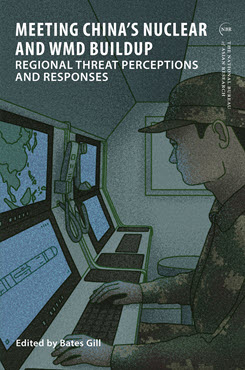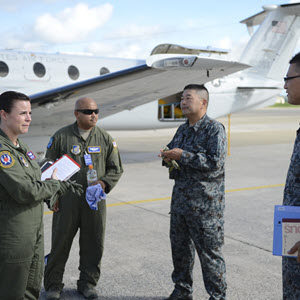Essay in NBR Special Report 109
A Philippine Perspective on China’s WMD Threat
This essay examines the threat to the Philippines from China’s WMDs and argues that this threat is seen largely in scenarios that are related to the direct involvement of the Philippines in a conflict arising from China’s strategic competition with the U.S.
EXECUTIVE SUMMARY
MAIN ARGUMENT
MAIN ARGUMENT
Although China poses a serious challenge to Philippine interests, particularly in the West Philippine Sea, this maritime dispute does not involve China’s nuclear forces directly. China’s forceful assertiveness of its claim to exclusive sovereignty over almost the entire South China Sea (with very little basis in international law and without a specific scope) has been conducted using tactics that fall short of violent armed action. Although People’s Liberation Army Navy ships have been observed in proximate distance from the coast guard ships involved in these activities, they have so far not directly engaged in any action against Philippine ships or personnel. Neither has the China Coast Guard nor its auxiliaries used armed force, though the level of violence utilized has been sufficient enough to damage Philippine ships and injure Filipinos in these ships. While of concern to Philippine defense and security planners, China’s nuclear weapons development is largely seen as consequential in the context of the Philippines’ alliance with the U.S. Given the asymmetry of capabilities between China and the Philippines, it is not likely that nuclear weapons would be utilized by the former against the latter. Nuclear weapons, however, would most likely be a factor in any conflict between Chinese and U.S. forces. Because of the Philippines-U.S. alliance and the defense agreement that has allowed the U.S. military access to deployment sites in the Philippines, the possibility that the Philippines could be involved in a conflict between China and the U.S. is more likely now than it was ten years ago.
POLICY IMPLICATIONS
- Given asymmetries in military capabilities, the Philippines will rely heavily on U.S. military cooperation in asserting its claim over the West Philippine Sea.
- At the same time, the Philippines will enhance security cooperation with other allies, especially Japan and Australia.
- As far as the issue of WMDs is concerned, the Philippines will take a normative and regional approach toward trying to reduce the threat of these weapons being used in the region.
Herman Joseph S. Kraft is a Professor of Political Science at the University of the Philippines Diliman in Quezon City.



